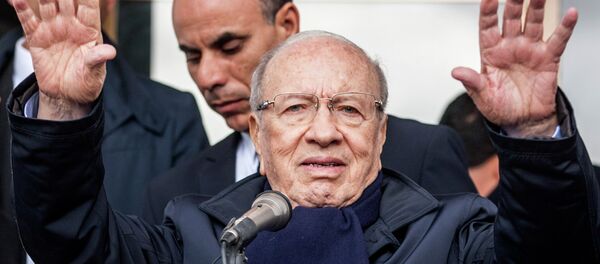UNITED NATIONS, December 23 (Sputnik) — After Beji Caid Essebsi won the run-off in the Tunisian presidential election, UN Secretary General Ban Ki-moon on Tuesday said he commends the Tunisian people on the successful holding of the second round of democratic presidential elections on December 21 and congratulates Mr. Beji Caid Essebsi on his election.
"This historic event is a critical step in the country's transition and a clear demonstration of the people's desire for accountable and representative government," Ban said.
Ban also expressed the hope that "the Tunisian people and their newly elected authorities will continue to embrace the spirit of inclusiveness that has guided the transition up to this moment."
Back on November 24, after the first round, in which Beji Caid Essebsi came in first and Moncef Marzouki came in second, Ban said the UN would continue to support the consolidation of the democratic process in Tunisia.
On Tuesday, Ban reiterated "the availability of the United Nations to continue supporting the Tunisian authorities as they tackle the challenges the country is facing and pursue the process of democratic consolidation and economic development."
This is the first-ever democratic election in Tunisia, following the ousting of Ben Ali in 2011. Under the country"s new constitution, passed earlier this year, the elected president will face restricted powers in appointing senior officials, among other provisions.
In the course of the 2011 uprising, known as the Jasmine revolution, then-president Zine El Abidine Ben Ali was ousted. The revolution was triggered by poor social and economic situation in Tunisia, as well as by lack of democratic rights and freedoms.



